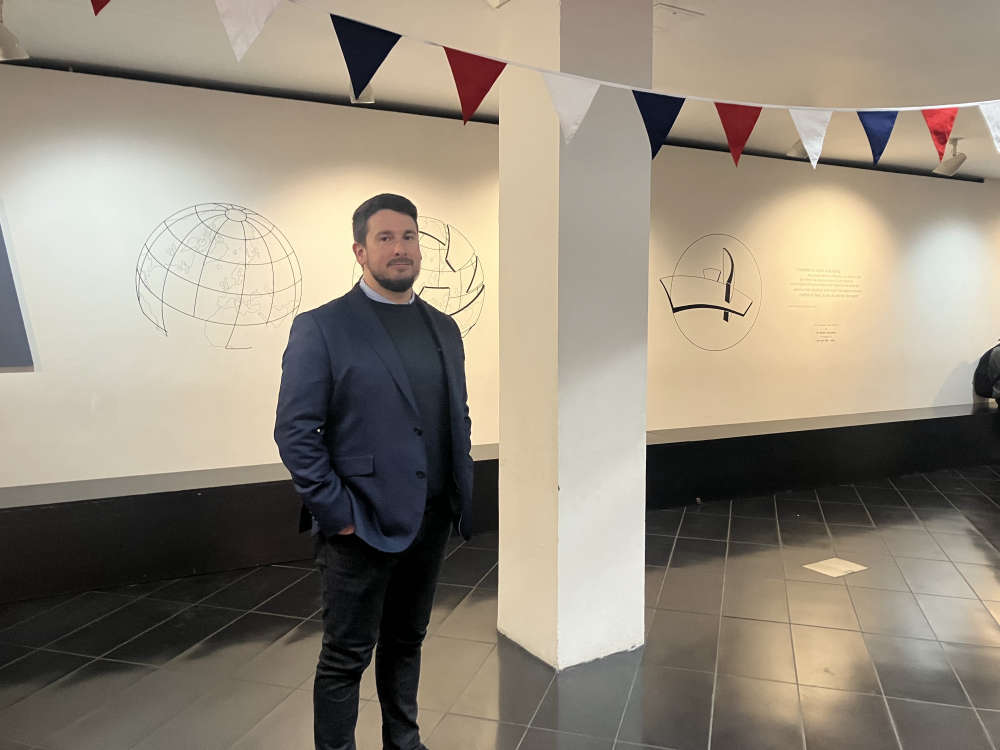
After eight years serving in the armed forces, Craig Monaghan’s whole world shattered.
A deployment in Afghanistan resulted in the tragic loss of 14 members of his regiment. Craig escaped with his life – just.
But a traumatic brain injury, which resulted in hearing loss, meant he had to leave his successful career in the army. And, he says, that’s when the struggle really began.
“People think ‘Oh they’ve served in Afghanistan, they must have PTSD’,” Craig told the Local Democracy Reporting Service. “Mental health is a big problem. But for most people, it’s coming out of the army and suddenly not having that purpose, not having your friends. It’s the loss of identity people really struggle with.
“I was part of a company that lost 14 people in action. Since Afghanistan, I’ve lost another 14 friends from that same company to suicide.”
The Greater Manchester vet and Spearhead Foundation founder speaks to the LDRS at the Imperial War Museum, during the launch event of the VALOUR Network. The new £50m government scheme is being piloted in Greater Manchester and seeks to join-up hundreds of different veterans charities to provide ‘wrap-around’ support for those leaving the force.
The new Manchester HQ will connect vets to the help they need, such as housing, mental and physical health and employment guidance and services.
With their HQ opening in Manchester, the Ministry of Defence hopes to create a blueprint that can be replicated all across the UK.
“It’s very positive,” Craig said. “With the veterans community, there’s a lot of noise, there’s a lot of good practice, bad practice. When I first left the service, it felt like I was being pulled from pillar to post. Hopefully Valour will create a central hub where you can be linked up with the right help.”
He hopes the new scheme will provide a soft-touch approach that will encourage more ex-soldiers to open up about their mental health, after facing his own demons on his own for years.
Craig said: “I really struggled [with reaching out for help] – still really do struggle with it. There’s a lot of trauma from being wounded. For me coming out of service the PTSD factor was really huge.
“I tried to take my life on three occasions. It was only after the third occasion when I woke up in hospital, I thought ‘I’m really not that good at trying to take my own life so maybe I need to try and do something’.
“I was almost forced then to take a step forward. Having a sounding board and creating a softer approach to open up, hopefully that means you can nip it in the bud before anyone tries to take their own life.”
Craig lived in a battalion in Northern Ireland, sharing a corridor with five other of his regiment members.
“All our weekends were spent together, all our meals,” he said. “It was very weird for me. I came back to the battalion after Afghanistan. Four of the people in my corridor were dead.
“I remember being in one night and hearing rustling next door and freaking out – but they’d just moved someone new in. It has an effect. On the outside, if you have a friend die, you can mourn them. In the army, you don’t get that chance. You mourn afterwards.”
Vets can find it hard to readjust to civilian life after years of service. After forging close bonds with regiment members, they can find themselves suddenly isolated and missing the roots and friendship groups of normal civilians.
That’s why a joint-up support network is crucial to helping them adjust, according to Al Cairns, the Minister for Veterans and People.
“A lot of veterans are fine when they leave, but a couple years later, they might experience issues – they might be physical, mental, they could be career-related or even a break-up in a relationship – so where do they go for help? At the moment they probably have to tell their story nine different times before they get the help they need,” Mr Cairns said.
“The armed forces is a fantastic place for service. But we’ve got to make sure when you leave, you can transfer and translate your skills into civilian life.”
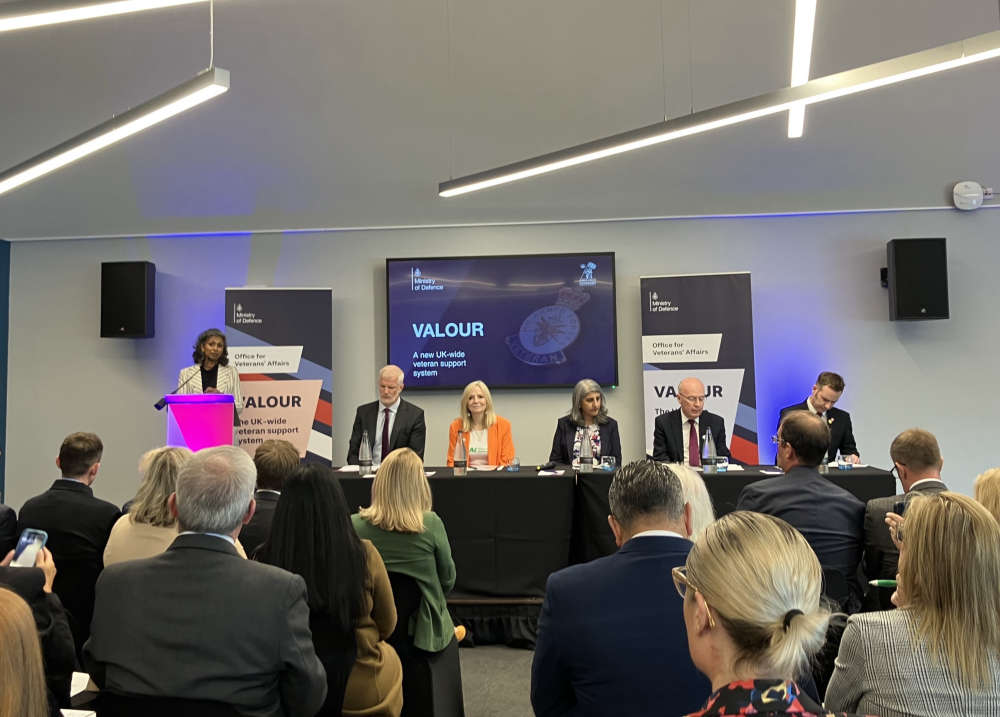
Pictured (above): VALOUR Network launch at the Imperial War Museum.
Greater Manchester was chosen for the first VALOUR HQ because of its ‘forces friendly’ local authorities, according the Minister. The region has more than 220,000 veterans.
Though he couldn’t attend the launch due to illness, Greater Manchester mayor Andy Burnham commented: “For too long veterans have not been properly looked after despite their service to this country. So it is great that the government has launched the VALOUR network to give former members of the Armed Forces the tailored support they deserve.
“This scheme also highlights how improving lives in local communities can be done through further devolution, and we look forward to working alongside colleagues in the three other Combined Authorities to make this pilot successful.”
The pilot is being launched by the Government’s Office for Veterans’ Affairs (OVA) in partnership with Greater Manchester, Liverpool City Region, West Yorkshire, and South Yorkshire.
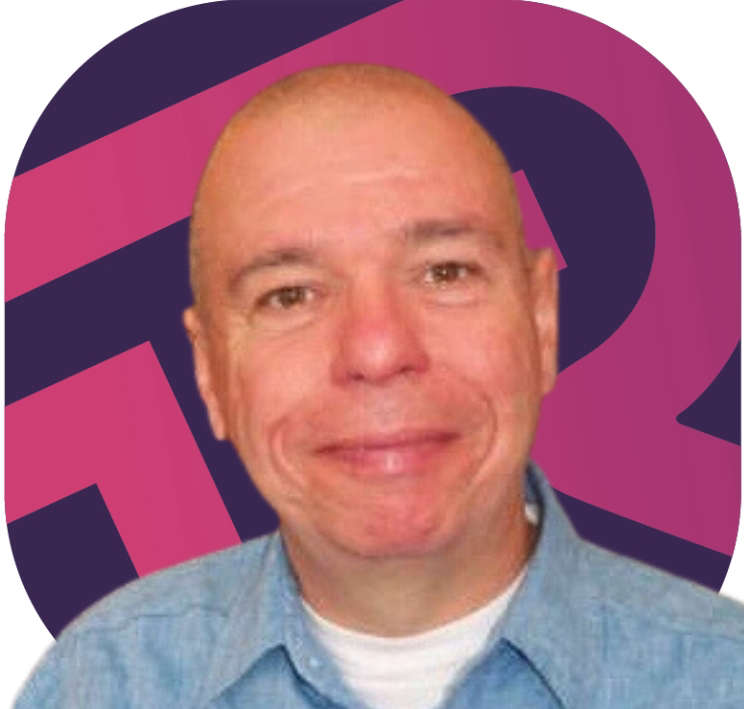

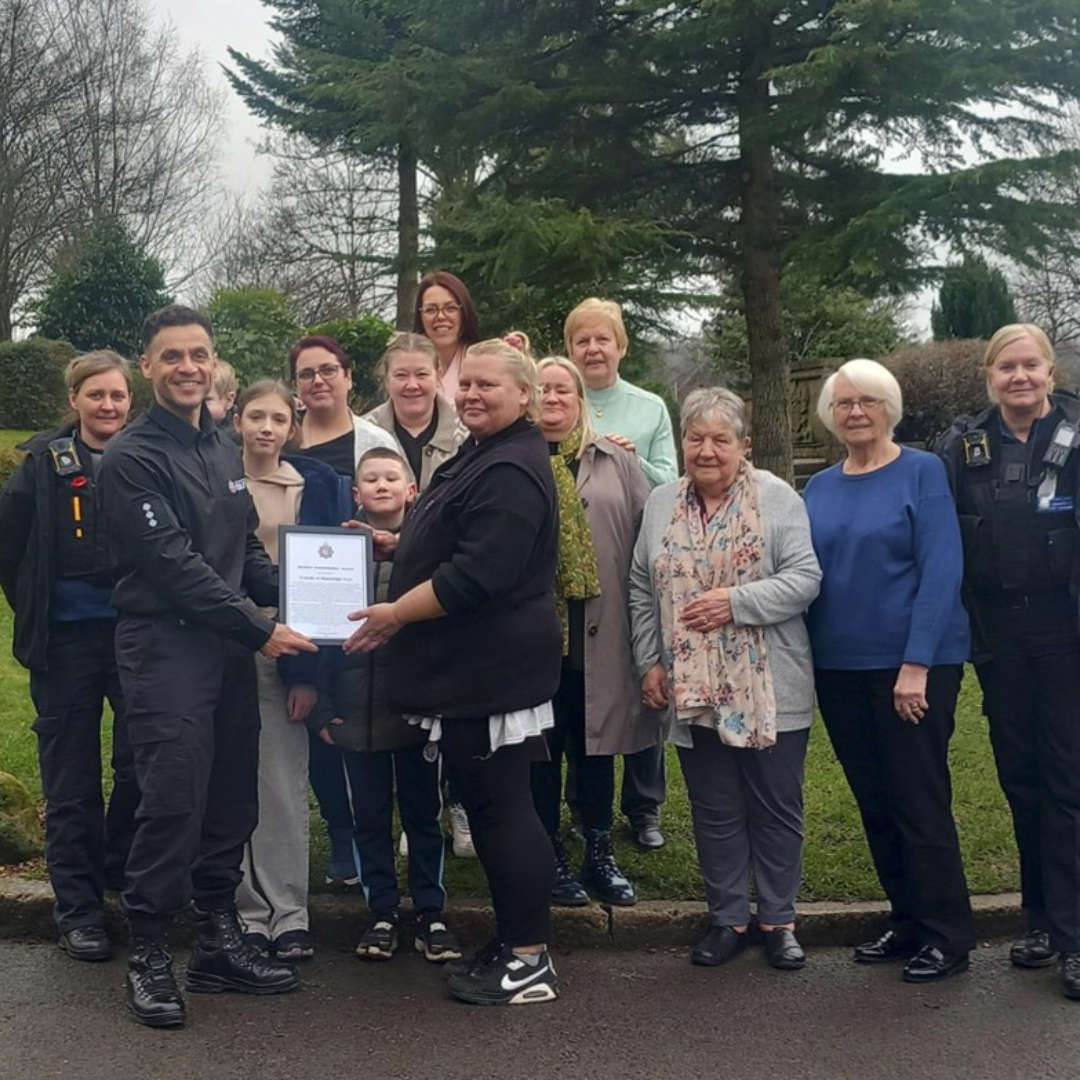 Derker community group recognised for support of Vulcan partnership work
Derker community group recognised for support of Vulcan partnership work
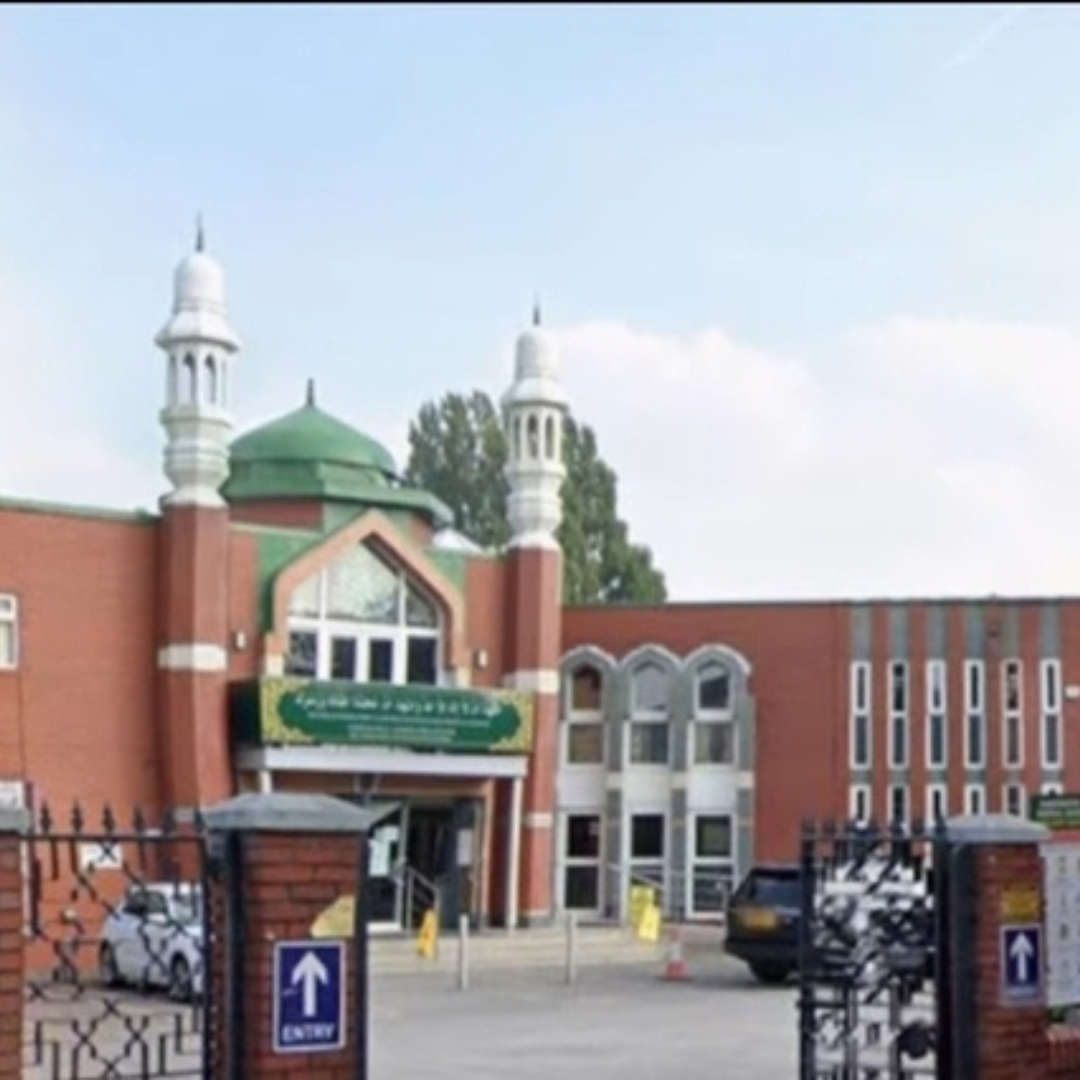 Second man arrested in connection with Manchester Mosque incident with local councillors expressing shock
Second man arrested in connection with Manchester Mosque incident with local councillors expressing shock
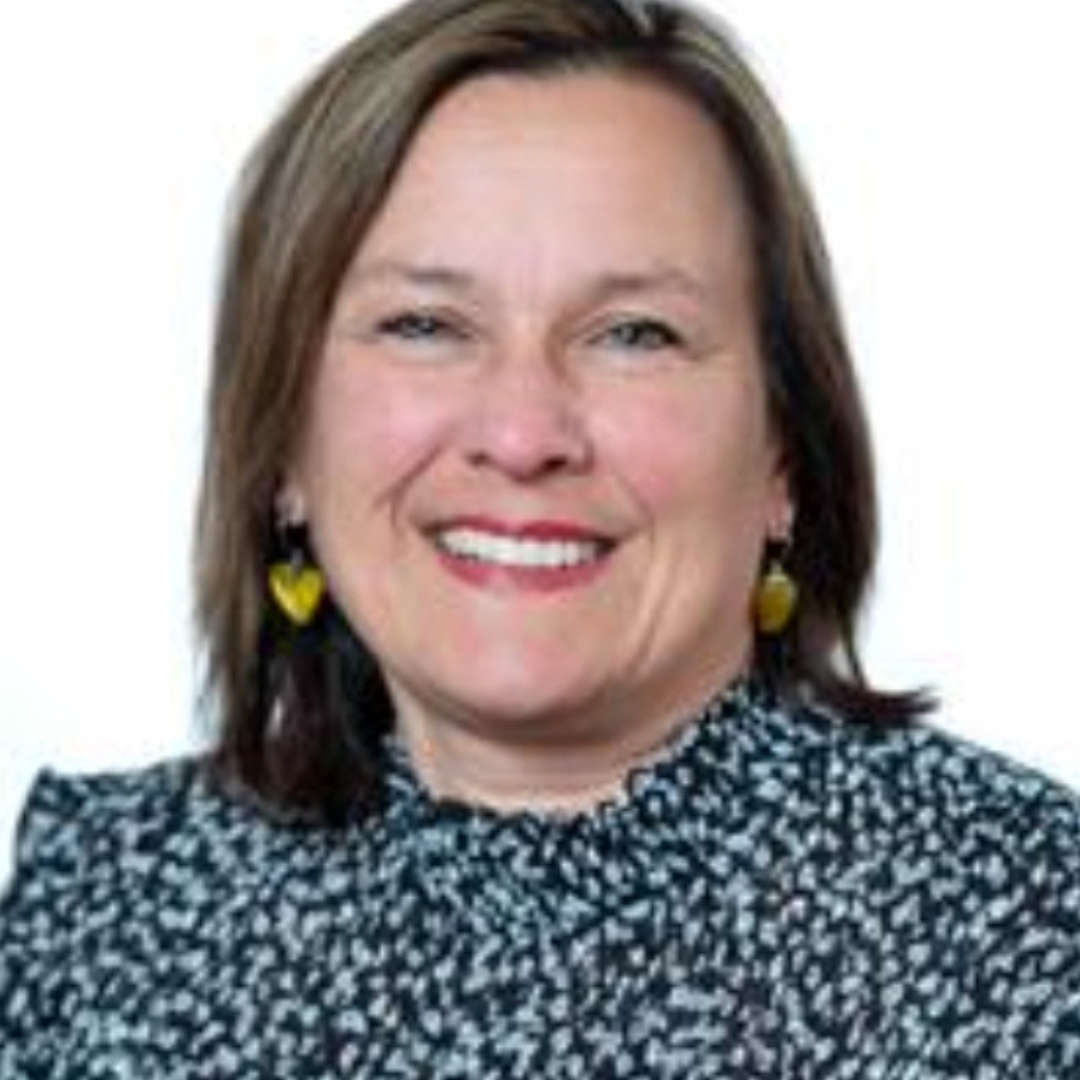 Council pushed to do more to support residents without internet access
Council pushed to do more to support residents without internet access
 Man wanted on recall to prison
Man wanted on recall to prison



